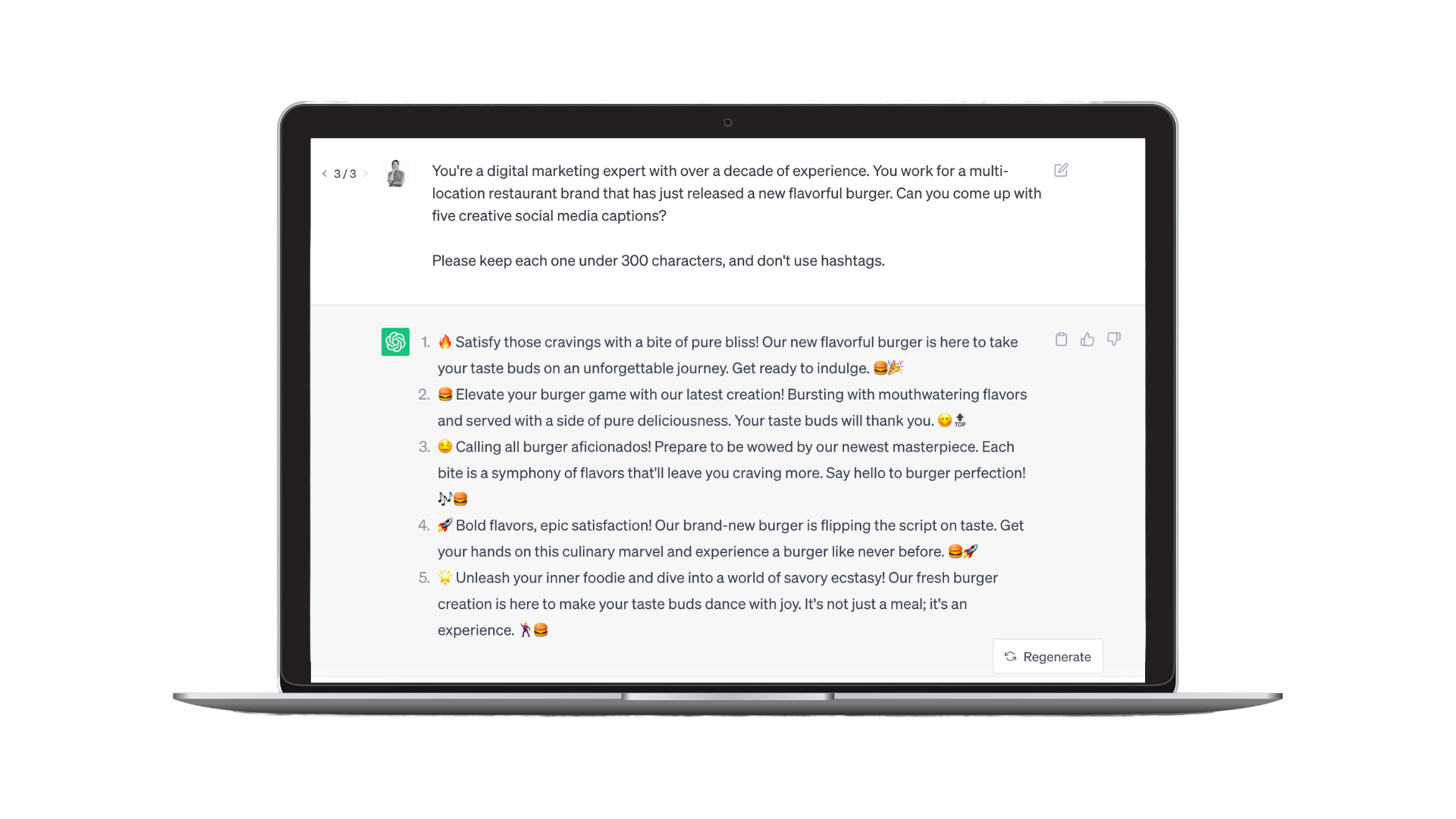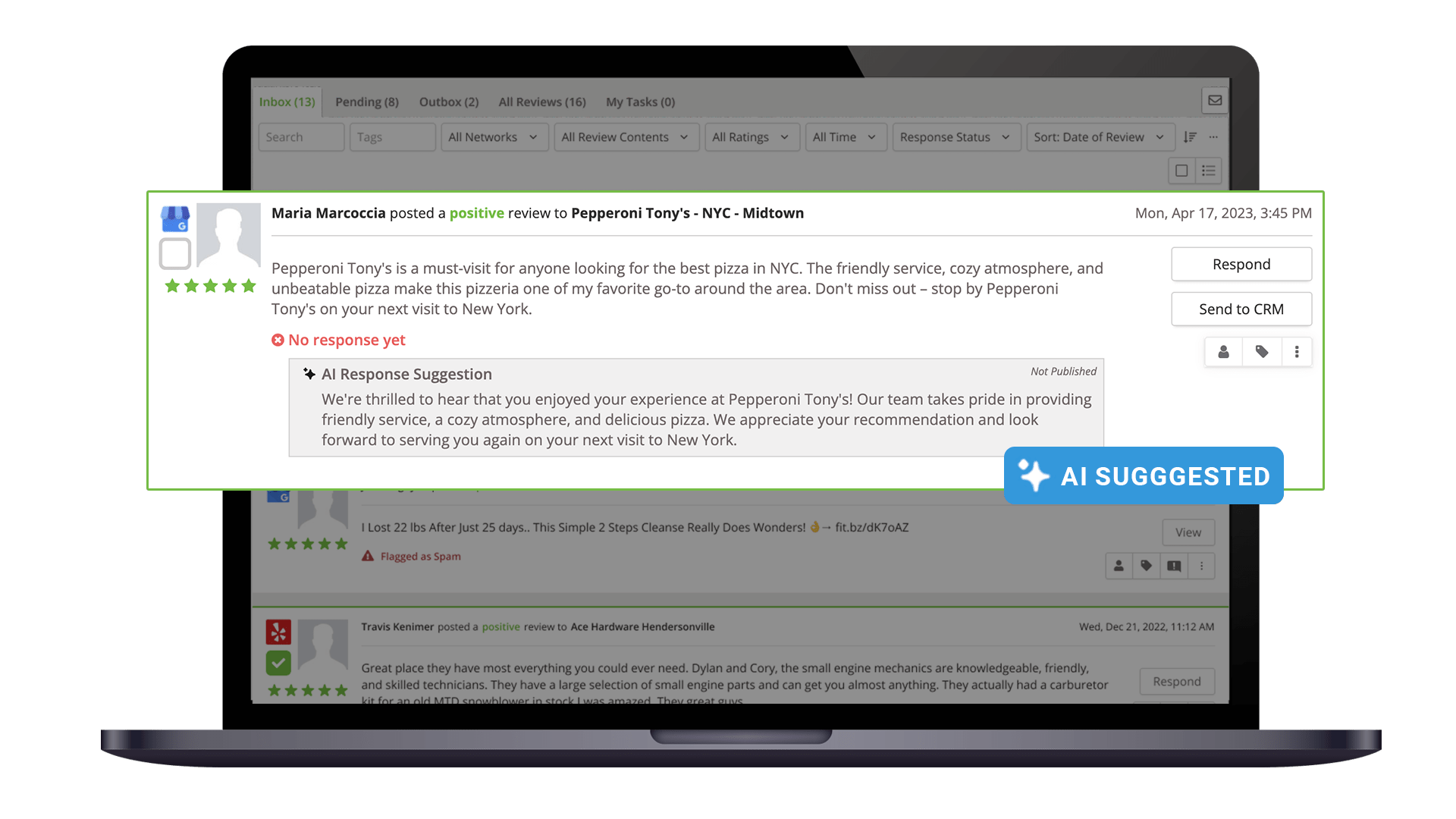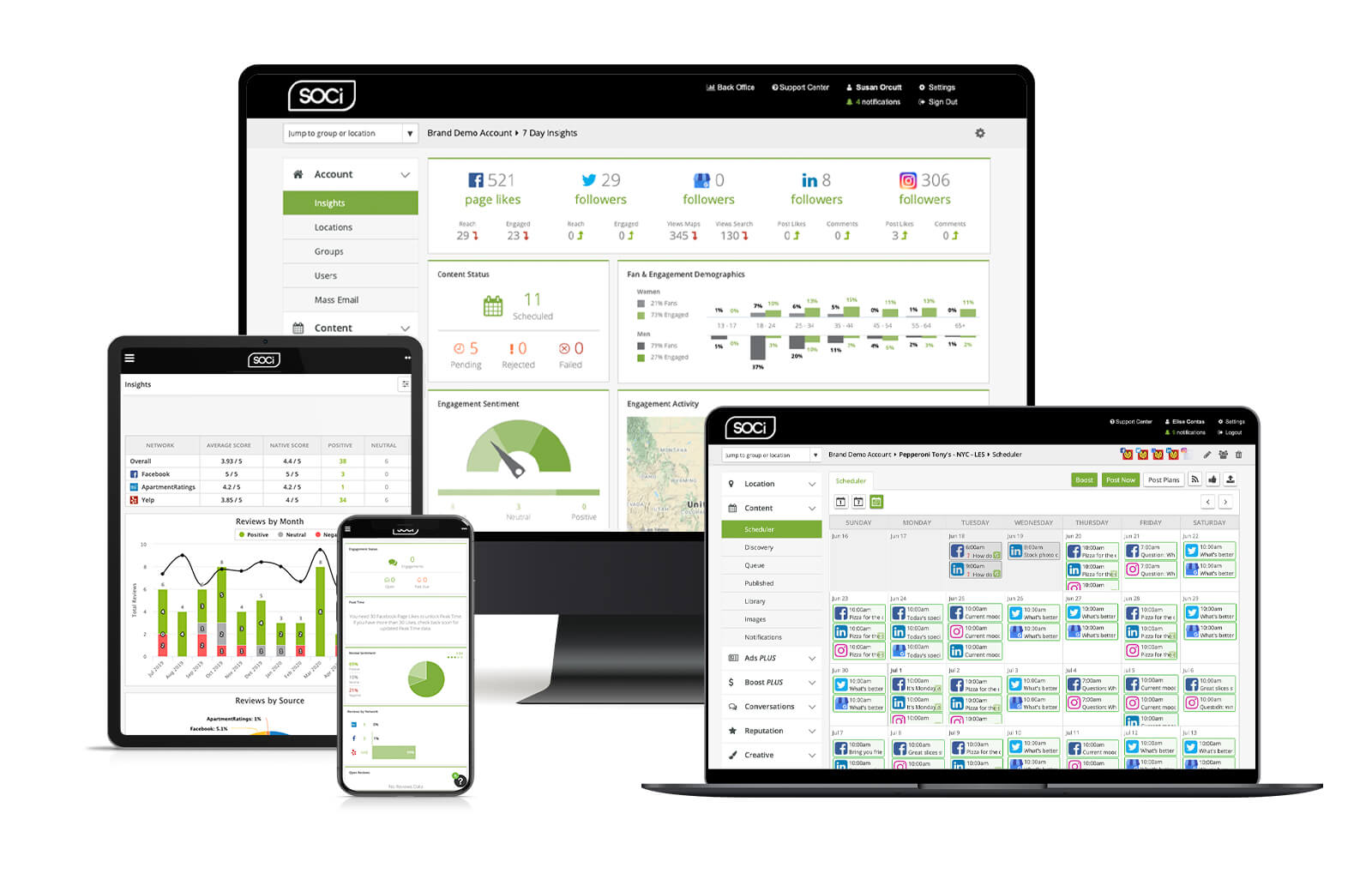How to Use AI in Multi-Location Marketing: A Complete Guide
Table of Contents
In the ever-evolving landscape of multi-location marketing, artificial intelligence (AI) has emerged as a game-changing technology. This transformative technology will impact nearly every aspect of your multi-location brand — particularly in marketing.
Most multi-location marketers agree. We recently found that 95% of multi-location marketers believe AI is a transformative technology that will significantly impact marketing.
Your multi-location enterprise must implement AI now to stay ahead in an already competitive market.
Use this article to discover how to best use AI in your multi-location marketing strategy to enhance your customer experience, drive more positive engagements, and boost revenue across every location.
The Top 6 Ways to Use AI in Multi-Location Marketing
AI can help reduce the time and energy local store owners and marketers spend on repetitive tasks. It should also give you the ability to make better data-led decisions. Below are six impactful ways to use AI in multi-location marketing.
1. Generate Superior Content, Quicker
Generative AI has quickly become one of the more popular and used types of AI for multi-location marketers. According to our recent survey, 65% of multi-location marketers have already incorporated generative AI into their marketing technology.
When it comes to multi-location marketing, your company can use generative AI to help create on-brand and enticing content across your:
- Local landing pages
- Local listings
- Local social profiles
- Digital ad campaigns
- Emails
- Blog posts and articles
Implementing generative AI can dramatically speed up your team’s content creation process. For instance, generative AI can help you write on an introduction to a blog, or modify an email subject line. It doesn’t always need to be used to create an entire asset, but can be used to further creativity and increase efficiency.
Note that with generative AI, you must keep the human in the loop and ensure teams review all AI-generated content to ensure accuracy and brand standards.
Read our blog on getting started with generative AI to learn more!
2. Respond to Reviews and Boost Your Reputation
Over three-quarters of consumers who leave critical reviews expect a business to respond to them, and 40% expect a response within 24 hours. Responding to reviews can improve your customer experience (CX), online reputation, and local conversions.
Generative AI can also speed up your review response process while adhering to brand guidelines.
For instance, SOCi Genius Reviews integrates with OpenAI’s GPT-4 to deliver an automated and highly customizable review management system. It also gives local teams the power to respond to reviews in a few seconds and corporate teams the ability to identify emerging sentiment trends and analyze shifts in online reputation.
Responding to online reviews with the help of generative AI can save your team time and resources while significantly improving your locations’ online reputation.
3. Efficiently Deploy Highly Targeted Social Ads
Social media advertising often requires a lot of manual inputting and tracking, particularly for businesses with multiple locations executing ads across various social platforms. You may feel like you’re constantly modifying audiences and running A/B tests.
AI’s ability to analyze large data sets and make precise recommendations reduces these manual levers and can help automate your social ad campaigns.
Social media conglomerates are already utilizing AI for advertising. Meta uses AI and machine learning in its Meta Advantage product suite to “help optimize campaign results, personalize your ads by matching them to the right people at the right time, and unlock greater efficiencies to help you save time and money.”
Courtesy of Meta
Utilizing these social media platforms’ AI software can decrease the time it takes for your team to create ads. They also help you generate more efficient and targeted ads.
4. Quickly Engage With Customers on Social Platforms
Similar to responding to reviews, customers want you to respond to their social media comments. More than 76% of people expect companies to respond to comments on social media, and 83% of those people expect a response within 24 hours.
Leveraging AI in social media can help your multi-location brand interact and engage with your followers by analyzing user data for personalized interactions and providing timely responses.
Visit our SOCi Genius page to learn more about how SOCi will soon implement and integrate AI-driven automations into our social media product.
5. Personalize the Customer Experience
Sixty-three percent of consumers will leave a brand because of a poor customer experience (CX). As you know, it’s imperative to provide your customers with a high-quality CX. Personalization is a vital part of the CX. It builds more of a connection between customers and your brand.
AI systems can already create highly personalized customer experiences. These systems rely on data from:
- Loyalty programs
- Email clicks
- Website engagements
- Customers’ transaction history
- Social media interactions
This gives your multi-location enterprise millions of data points that AI can use to make more personalized recommendations that strengthen your CX. Here are a few ways multi-location brands can use this data to personalize their CX further:
- Restaurants can pre-load previously purchased menu items on their apps
- Retailers send recommended items that are similar to customers’ previous purchases
- Companies may send emails or push notifications during high online traffic times to increase conversions.
This predictive AI not only personalizes your company’s CX but can also lead to an increase in conversions and sales.
6. Improved Data Analytics
Your multi-location business receives thousands, if not millions, of customer interactions each day across a multitude of platforms. With this vast amount of customer data, you need a centralized database to host these data points.
AI software can filter, organize, and analyze these data points and make actionable recommendations. These recommendations can be store-specific or at a regional and national scale.
For instance, you can use sentiment analysis to understand why certain local listings and social profiles have a stellar reputation. Then, you can devise and execute a plan to incorporate their already-proven tactics across all locations.
This cohesive campaign gives you more data to enter into your database and the ability to optimize your locations’ reputation even further.
Start Implementing AI Into Your Multi-Location Marketing Strategy
Now that you know the transformative power of AI, it’s time to begin incorporating AI into your multi-location marketing strategy. Regardless of where you are in your AI journey, SOCi can help.
SOCi is the CoMarketing Cloud for multi-location enterprises. Our AI-driven software, SOCi Genius, utilizes data science to analyze local interactions across numerous channels and make insightful business recommendations.
SOCi Genius also automates your customer touchpoints and data-driven tasks across all locations, saving your marketing and local teams time and energy while maximizing ROI.
Request a demo today to learn how SOCi can help your multi-location brand along its AI journey and further separate itself from competitors.




